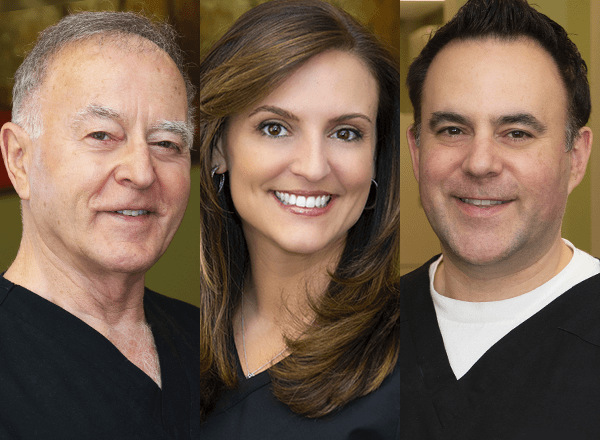Sleep Apnea Treatment in Chicago
What Is Sleep Apnea?
Sleep apnea is a nighttime disorder that often goes undiagnosed and misunderstood. Characterized by recurring interruptions in breathing during sleep, this condition can result in a dip in oxygen for the body and lead to serious health risks.
Types of Sleep Apnea
There are three types of sleep apnea:
- Obstructive sleep apnea (OSA) occurs when the muscles in the back of the throat fail to keep the airway open, causing the person to briefly wake up and gasp for air. This cycle can happen many times during the night, disrupting sleep and leading to a range of health problems.
- Central sleep apnea (CSA) occurs when the brain fails to signal the muscles that control breathing. This can lead to pauses in breathing during sleep and disruption of sleep.
- Complex sleep apnea syndrome (CSAS) is a combination of obstructive sleep apnea (OSA) and central sleep apnea (CSA).
Symptoms of Sleep Apnea
The symptoms of sleep apnea can vary from person to person, but the most common ones include:
- Loud snoring
- Gasping or choking during sleep
- Daytime fatigue
- Morning headaches
- Dry mouth or sore throat upon waking
- Irritability or mood changes
- Difficulty concentrating
- Depression or anxiety
Diagnosing Sleep Apnea
It’s crucial to get your sleep evaluated by a professional if you experience symptoms such as loud and frequent snoring, choking, or stopping breathing during sleep or have been told by family or friends that you exhibit these symptoms. The experienced Chicago, IL, sleep dentists of Contos Smile Center will assist you in receiving a precise diagnosis.
Diagnosis typically involves an overnight observation at a sleep center, which evaluates various states of sleep, heart rate, breathing, eye movement, muscle activity, and the amount of oxygen in the blood. The severity of the condition can also be determined during this evaluation.
Sleep Apnea Treatment Options
Dental Appliance
A dental appliance is a type of oral appliance that treat sleep apnea. It is also known as a mandibular advancement device (MAD) or a mandibular repositioning device (MRD). By keeping the airway open, the dental appliance can reduce the frequency and severity of sleep apnea episodes.
CPAP Therapy
One of the most commonly prescribed treatments for sleep apnea is a CPAP machine, which helps regulate breathing at night. This “continuous positive airway pressure” unit includes a mask that fits over the nose and mouth and creates a gentle stream of air to support normal breathing.
Lifestyle Modifications
Some lifestyle changes that can help manage sleep apnea include:
- Losing Weight: Obesity is a major risk factor for sleep apnea, and losing weight can significantly improve symptoms.
- Changing Sleep Position: Sleeping on your back can cause your tongue and soft palate to collapse to the back of your throat, obstructing the airway. Sleeping on your side may help alleviate this.
- Establishing a Regular Sleep Schedule: Going to bed and waking up at the same time daily can help regulate your body’s sleep-wake cycle and improve sleep quality.
- Trying Breathing Exercises: Certain breathing exercises, such as deep breathing and pursed-lip breathing, can help strengthen the muscles used in breathing and improve overall lung function.
- Managing Stress: Managing stress through relaxation techniques, such as meditation or yoga, can help improve sleep quality and reduce symptoms.
Frequently Asked Questions
The main cause of sleep apnea is airway obstruction, usually due to the relaxation of the muscles in the throat during sleep. This can be caused by obesity, genetics, and smoking.
In some cases, mild sleep apnea may improve with lifestyle changes, such as weight loss, quitting smoking, and avoiding alcohol and sedatives. However, for most people with sleep apnea, the condition will not go away on its own without proper treatment.
Untreated sleep apnea can have serious health consequences. It can increase the risk of high blood pressure, heart disease, stroke, and diabetes, as well as lead to daytime fatigue, memory problems, and decreased quality of life. It can also affect your ability to drive and increase the risk of accidents.
While lifestyle changes can help manage sleep apnea, they may not be enough to fully treat the condition. Some natural remedies that may be helpful include:
- Lose weight
- Exercise regularly
- Avoid alcohol and sedatives
- Sleep on your side
- Use a humidifier
Return to Quality Sleep with Personalized Sleep Apnea Treatment
In conclusion, sleep apnea is a serious condition that can hurt both physical and mental health. Consult with a healthcare professional to determine the best course of action for managing sleep apnea. With proper treatment and management, individuals with sleep apnea can improve their quality of life and overall health. Call our Chicago, IL, office at (773) 973-0531 or fill out our online contact form to schedule a consultation. We also welcome patients from Skokie, Evanston, and Lincolnwood.
Our Vision
We are dedicated to providing the highest level of service and quality to our patient community by cultivating strong relationships, communicating thoughtful treatment solutions, and providing an enjoyable atmosphere, we can empower our patients to take ownership of their oral health.
We are committed to researching and offering state-of-the-art dental solutions in order to deliver the most advanced treatment options to our patients.



